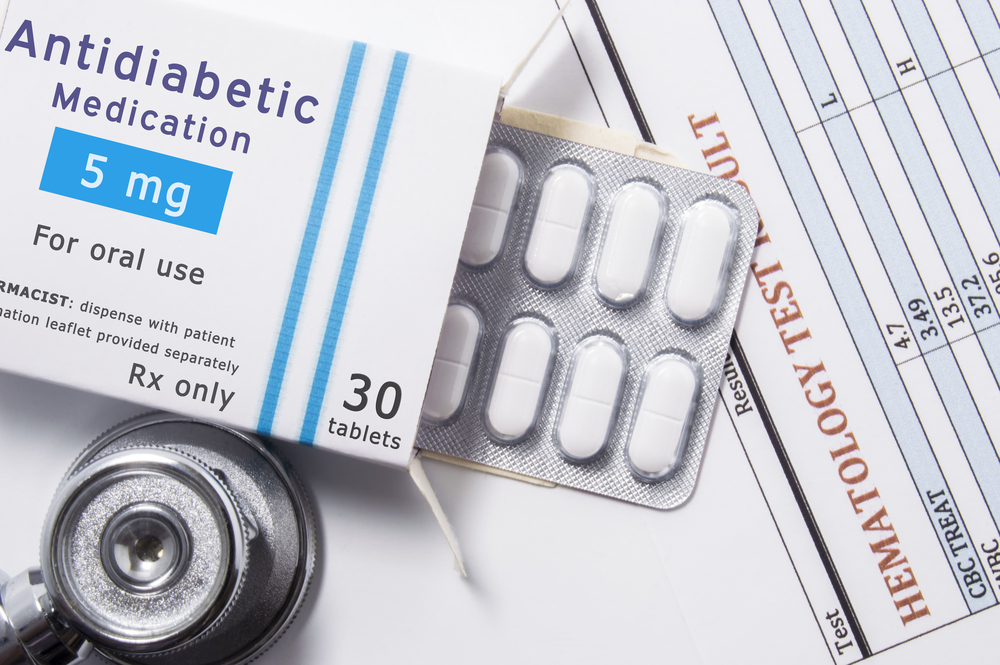Can Diabetic Medications Help You Lose Weight?

Losing weight can be challenging for anyone, but it can be especially difficult if you have diabetes. While there are many factors that contribute to weight loss, medications can play a role in both causing and preventing weight gain.
If you're a diabetic patient struggling to lose weight, you may be wondering why this is happening. In this article, we'll explore the link between diabetes medications and weight loss, as well as some of the other factors that may be at play.
Role of Drugs:
Diabetes medications can affect weight in a few different ways. Some diabetes drugs, like Metformin, may help to promote weight loss. In one study, people with diabetes who took metformin for two years lost an average of 7% of their body weight. Also, drugs introduced a few years ago like GLP1 receptor analogs like Liraglutide (VICTOZA) and Semaglutide (Rybelsus) lead to significant weight loss along with good anti-diabetic effects.
Other drugs, like Pioglitazone and to some extent Insulin, can cause weight gain. This is because insulin makes it easier for the body to store fat.
Risks and Benefits:
The choice of anti-diabetic medication is based on multiple factors like patients age, duration of diabetes, co-morbidities and body weight. The risks and benefits of Anti-diabetic medications leading to weight loss needs to be considered before starting any medication. Rarely weight loss drugs can have side effects, like nausea and diarrhea, that may lead to dehydration and electrolyte imbalances. They can also interact with other medications you're taking and may not be suitable for people with certain medical conditions.
That said, if you're struggling to lose weight and your diabetes is uncontrolled, your doctor may consider a weight loss drug as part of your treatment plan.
What to Do:
Weight loss is an important part of managing diabetes, but it’s not always easy to achieve. If you’re having trouble losing weight, talk to your doctor about whether a weight loss drug may be right for you. There are also natural ways to lose weight that may be more effective in the long term.
In order to reach and keep a healthy weight, it's important to eat a balanced diet and exercise frequently. Ask your doctor or a trained nutritionist for advice if you're seeking for additional suggestions on how to lose weight without taking any medication.
Cause of Diabetes:
There is possibly no single cause for diabetes in a patient. Often there are a number of factors that can increase the risk of developing diabetes and these include:-
- Family history. If you have a family member with diabetes, you're more likely to develop the condition yourself.
- Obesity. Being overweight or obese is a major risk factor for type 2 diabetes.
- Physical inactivity. Diabetes risk might rise with a sedentary lifestyle.
- Cigarette smoking. Smoking cigarettes is a major risk factor for type 2 diabetes.
- 5: Viral Infections: Certain viral infections have been associated with the development of diabetes in children.
- High blood pressure. Having high blood pressure is a major risk factor for both type 1 and type 2 diabetes.
- Pprediabetes. If you have prediabetes, your chances of advancing into a state of full blown diabetes is very high.
- Gestational diabetes. If you develop gestational diabetes during pregnancy, you're more likely to develop type 2 diabetes later in life.
- Certain ethnicities. Certain ethnic groups are at increased risk of type 2 diabetes, including people of Hispanic, Asian, or Native American descent.
- Associated Conditions: Certain medical conditions are closely related to diabetes and hence people suffering from any of these need to more careful. These include polycystic ovary syndrome (PCOS), High blood pressure of Hypertension and Raised Cholesterol or Dyslipidemia.
It's crucial to discuss measures to reduce your risk of type 2 diabetes with your doctor if you have any of these risk factors. Making lifestyle changes, such as improving your diet and getting more exercise, can often help. In some cases, your doctor may also prescribe medication to help manage your risk factors.
Sugar for Diabetes Patients:
You might believe that you must completely avoid sugar if you have diabetes. However, sugar is actually an important part of a balanced diet for people with diabetes. Here's what you need to know about sugar and diabetes.
Sugar is a type of carbohydrate that your body uses for energy. When you eat or drink foods that contain sugar, your body breaks down the sugar into glucose, which is then used for energy.
People with diabetes need to be aware of the amount of sugar in their diet and how it will affect their blood sugar levels. Too much sugar can cause blood sugar levels to spike, which can be dangerous.
However, sugar is not off-limits for people with diabetes. In fact, it's important to include some sugar in your diet in order to maintain balanced blood sugar levels. When it comes to sugar and diabetes, moderation is crucial. Also, sugar consumption may be lifesaving in case of severe hypoglycemia or low sugar condition.
Please discuss the use of sugar in your day-to-day life with your doctor or nutritionist and plan intake accordingly


